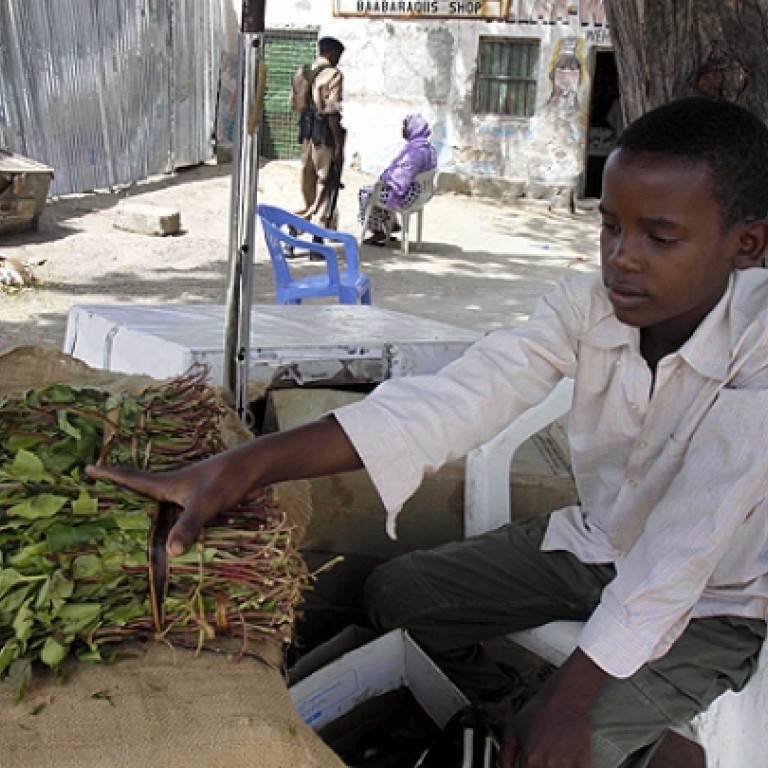
Britain ignores advice and bans stimulant khat
British Home Secretary Theresa May yesterday announced a ban on the herbal stimulant khat, going against the advice of her own experts who said such a move was disproportionate.
British Home Secretary Theresa May yesterday announced a ban on the herbal stimulant khat, going against the advice of her own experts who said such a move was disproportionate.
Khat is to be classified as a Class C drug alongside ketamine and benzodiazepines, supply and production of which is punishable by up to 14 years in jail.
It is predominantly used by immigrants from East Africa, where its consumption is widespread.
May acknowledged that the government's Advisory Council on the Misuse of Drugs (ACMD) advised against a ban in January after finding insufficient evidence that khat was harmful.
But she noted it was already illegal in several European countries as well as Canada and parts of the United States, and warned Britain risked becoming a hub for trafficking unless it took action.
"Failure to take decisive action and change our legislative position on khat would place the UK at serious risk of becoming a single, regional hub for trafficking," May said.
"Banning khat will help protect vulnerable members of our communities and send a clear message to an international audience that the UK is a hostile place for traffickers."
Khat consists of the leaves and shoots of the shrub Catha edulis and is chewed to obtain a mild stimulant effect.
On the publication of its report in January, ACMD chairman Professor Les Iversen said a ban would be "inappropriate and disproportionate", adding there is no evidence it has a "direct causal link to adverse medical effects".
